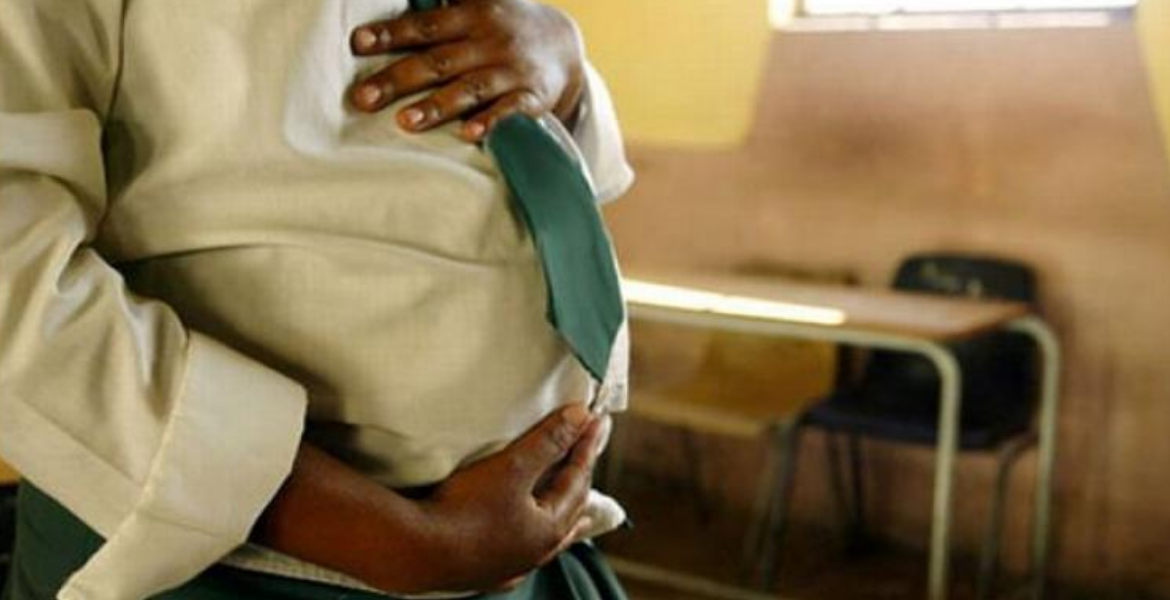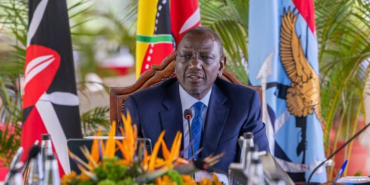Nairobi Takes Lead in Teen Pregnancies with 452 Cases

A recent report by the Kenya Human Rights Commission (KHRC) sheds light on the persistent problem of teenage pregnancy in the country.
The data reveals Nairobi County leading with the highest number of reported cases, followed by Kakamega and Bungoma Counties. However, the report highlights a more concerning disparity in counties with significantly higher pregnancy rates per capita. Samburu County follows closely after Nairobi with a staggering 50.1% prevalence, followed by West Pokot, Marsabit, and several others. The KHRC emphasizes the national government's and county governors' shortcomings in addressing this crisis.
The commission criticizes the Ministry of Health's withdrawal from a regional commitment to comprehensive sexual education. KHRC argues that this undermines efforts to empower young women and safeguard their fundamental rights. The report identifies poverty, gender-based violence, limited access to education, cultural practices, and COVID-19 school closures as key factors contributing to this issue. The KHRC emphasizes the lack of accessible sexual and reproductive health services and education as a significant driver of high teenage pregnancy rates.
Robert Waweru, a program advisor at the KHRC, underscores the shared responsibility of both national and county governments in tackling this crisis. He highlights the constitutional mandate for counties to prioritize healthcare services to prevent unintended pregnancies. The KHRC Deputy Executive Director Davis Malombe expresses concern about the government's withdrawal from efforts to address teenage pregnancy. This decision, he argues, signifies a lack of commitment to protecting young girls and enforcing preventative measures.
The report calls on both national and county governments to prioritize comprehensive sexual education, accessible healthcare services, and robust policies to empower young women and create a safer environment for them. In her plea to women leaders, Health Cabinet Secretary Susan Nakhumicha recently expressed concern over the alarming rates of sexual violence against adolescent girls. She highlighted the troubling increase in teenage pregnancies and new HIV transmission resulting from child sex.
According to the latest data from the National Syndemic Disease Control Council (NSDCC), the country reported a total of 53,960 cases of sexual and gender-based violence in 2023. Most of these cases targeted young women, girls, and children. Shockingly, out of these cases, 3,203 involved children aged zero to nine years. Furthermore, there were 254,753 pregnancies among girls aged between 10 and 19 years in 2023.








Comments
A sign of a failing country!…
Permalink
A sign of a failing country!!!???
Kenya has politicized home,…
Permalink
Kenya has politicized home, cultural and family affairs. The issue of pregnancy is a cultural and family affair and should be left that way.
This is should be left to parents to teach their children in their local languages when they are young and in their culture how to manage their family affairs.
The purpose of creating and caring for a family is cultural and Godly and spiritual, not a national affair. Each family works to feed and care for its own. As far as pregnancy is concerned, each community should be left alone to manage its own affairs.
Every community should take care of its own in terms of their culture. Pregnancy is not a health issue. Today, no one needs to go to the hospital because they are pregnant. They can have babies without involving hospitals.
The government should not try to micromanage home affairs because it will fail. This pregnancy issue is just empty propaganda. And should be taken as such.
No political interference is needed.
Add new comment